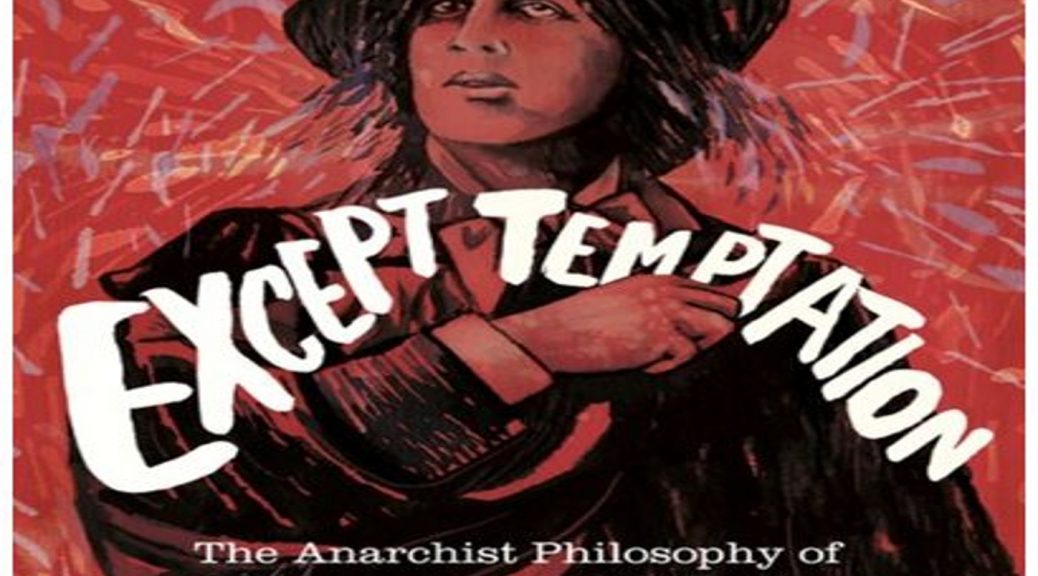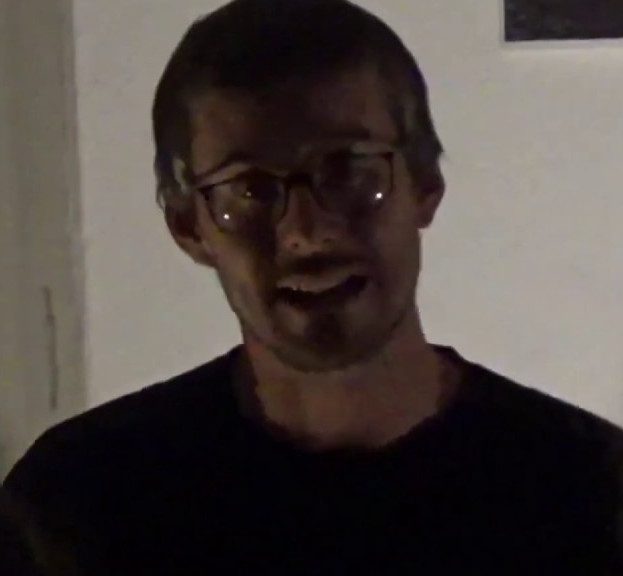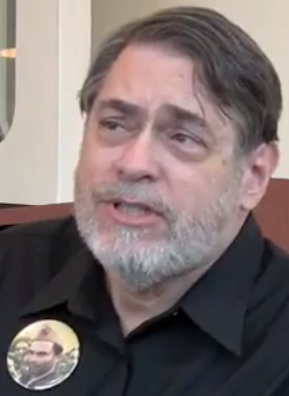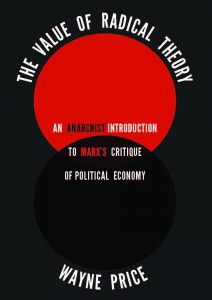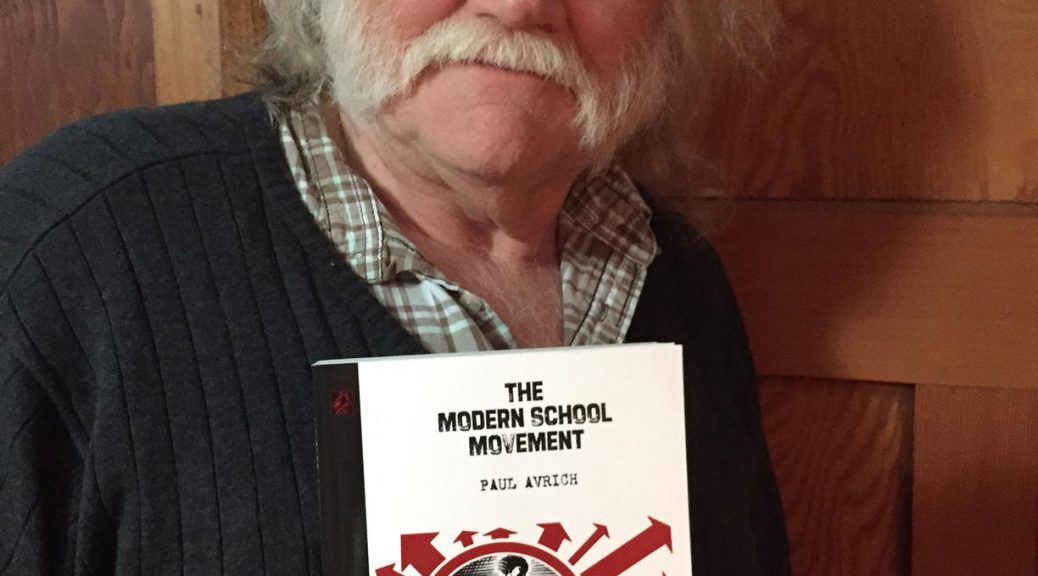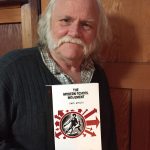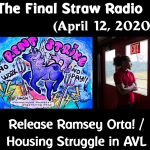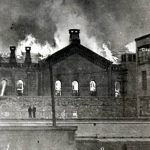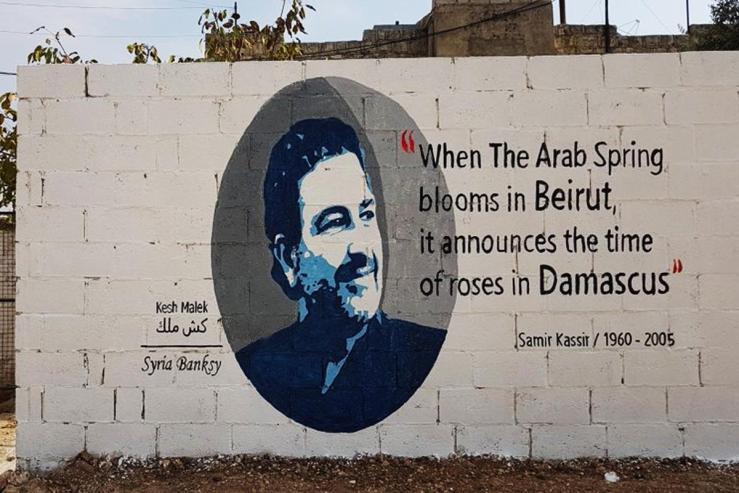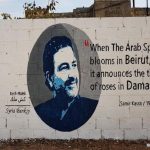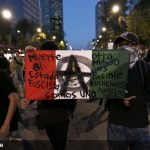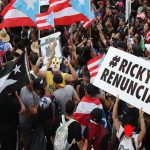The Intertwined Histories of Queerness and Anarchism; Guest Interview with Kristian Williams about his new book on Oscar Wilde
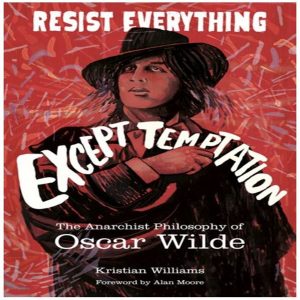
This week we are pleased to present a guest interview with author Kristian Williams about his new book Resist Everything Except Temptation: The Anarchist Philosophy of Oscar Wilde which was released in June 2020 from AK Press.
- Transcription (thanks to MKE Lit Supply!)
- PDF (unimposed)
- Zine (imposed PDF)
I found this interview extremely illuminating, perhaps like many other people who might not have strong ties to either academia or popular education models of learning, I had sort of written Oscar Wilde off as this kind of white dead rich guy who carried little to no relevance apart from a model of queerness that we could look back on. This interview very much proved that this isn’t the case, and that he and the circumstances around him very much influence how we as queers and as anarchists can sense historical threads that pull on our lives very tangibly today. Thanks a million to Scott for researching and conducting this interview!
You can learn more about the author, Kristian Williams, who is most known for his book Our Enemies in Blue, which is a critical history of American policing and police, at his website kristianwilliams.com.
Help Charlotte Jail Support Rebuild!
One announcement before we begin from our comrades at the Charlotte Uprising, Charlotte Jail Support has been getting extremely targeted harassment for some months from CMPD and the sheriff’s department. In times of rebellion or revolt, it is the support infrastructures that are often the most vulnerable to repression and violence. All of their supplies have either been seized or destroyed by the police, if you would like to support them re upping their much needed materials, you can Venmoing them @Ashwilliamsclt or Cash App $houseofkanautica.
. … . ..
Music for this episode:
Hustler – Retro Beatz (loop by William)
. … . ..
This is a slightly edited transcript of Scott’s interview of Kristian Williams on Kristian’s book, Resist Everything Except Temptation: The Anarchist Philosophy of Oscar Wilde, published in 2020 by AK Press. Thanks to Jim of the MKE Lit Supply for all the work!
Kristian Williams on The Final Straw
First aired on 9/12/2020 at https://TFSR.WTF
TFSR: I’m talking to Kristen Williams, who just published the book Resist Everything Except Temptation: The Anarchist Philosophy of Oscar Wilde. Kristian, would you please just introduce yourself, your pronouns, your name and any information that you think would be pertinent to the listeners of the Final Straw?
Kristian Williams: Sure. I’m Kristian Williams, author of a handful of books, probably most famously Our Enemies in Blue, which is a history of the police in the United States. As you mentioned, my most recent book is Resist Everything Except Temptation: The Anarchist Philosophy of Oscar Wilde, which is probably the book that has taken me the longest to write. I started working on it about 13 years ago.
TFSR: Oh wow. Is it nice to have it out? Was it a big passion project for you?
Kristian Williams: Yeah, it was the thing that I was always working on, never finishing, and had a surprisingly hard time interesting publishers. I think everyone I approached about it, their first response was, “that sounds great, but no.” Eventually AK [Press] asked to take another look at it, and I don’t know, here it is.
Scott (TFSR): Well, that’s exciting. And I’m glad [for] that. The shadow of Oscar Wilde kind of loomed large for a long time on anything that was related to him, so I’m glad that’s not still persisting, and they published the book. I also just incidentally, as an aside, I was writing my dissertation with a chapter on Wilde and got super sick during it, writing about Dorian Gray. And I ended up in the hospital, and I couldn’t finish that chapter, so I don’t know if there’s like a curse with writing on Oscar. I always thought about that. All right. Well, I’m really excited to talk to you about Oscar Wilde and anarchism. The main argument of your book is that to really understand Oscar Wilde, or at least to understand Oscar Wilde as a political thinker, we need to think about all of his art and philosophy through the lens of anarchism. And it’s really exciting to read the book and see how Wilde kind of intersected with anarchism and anarchists at the time. To read about the history, like the fear of anarchism that we’re [still] presented with today, and then just like getting another perspective on Wilde as a person, his relation to the aesthetic movement, the beginning of the queer movements, and all of these things I think still are pertinent today. I think a lot of people have heard of Oscar Wilde, maybe read a little bit or heard his epigrams, but do you think you could just give a quick overview of who he was as a figure and a person?
Kristian Williams: Sure. Let me see if I can do this at all efficiently. So, Wilde was born into the Irish aristocracy, educated at Trinity College in Dublin and then in Oxford, where he excelled in classics. Immediately, [he] became of sort of an early example of a person who was famous for being famous. Having developed a kind of celebrity and notoriety before he had really accomplished very much, [he] then leveraged that notoriety into a year long, a little bit more, lecture tour in the United States on the aesthetic movement. After that, he went on to publish a novel, The Picture of Dorian Gray, and then really rose to prominence with a set of four society plays, which were sort of nominally comedies about the manners and dramas of the elite of English society. At the peak of his popularity he became embroiled in a dispute with the Marquess of Queensberry, because Wilde was having an affair with Lord Alfred Douglas, who was Queensberry’s son, which led Queensberry toward more and more public and offensive behavior toward Wilde, which then led Wilde to file a ill-advised lawsuit for libel, which Queensberry very aptly turned back on him and produced criminal charges for gross indecency, which was the criminal term for homosexuality. That led Wilde to prison for a couple of years. He lost his family, lost his fortune, lived the short remainder of his life in exile in France and died virtually penniless.
TFSR: Thanks for that overview. And I want to touch on a few of those elements that you brought up just, [but] because this is an anarchist radio show podcast—I [want to] to start with anarchism in particular—did Wilde identify as an anarchist?
Kristian Williams: There are two occasions when he did. One was an interview in which he said, “once I was a poet and a tyrant, but now I am an artist and an anarchist.” And another, in a separate interview, he said, [when] asked about his politics, he said, “I’m a socialist, but we’re all socialists nowadays, so I must be something more. I think perhaps I’m an anarchist.” There were other occasions where he sort of flirted with the term, and probably my favorite is in a letter. He tells the story of being on a sailing trip with these two young men, and them getting caught in a storm, and it taking hours for them to get back to port. And when they got there, they were freezing cold and completely drenched and they rushed back to their hotel and ordered brandy. And the hotel proprietors sadly explained to them that because it was after 10 o’clock on a Sunday, the law prohibited him selling brandy. But given the circumstances, he decided he would just give them the brandy. And Wilde’s comment was along the lines of, “Not a bad outcome, but what utterly stupid laws” and then he finishes by saying that, “the two young men are, of course, now anarchists.”
TFSR: If I knew that that was the way to convert people, I’d be taking more sailing trips with young men. I’m always wondering. So, he used the term sometimes, but clearly anarchism and anarchists were out and about in Wilde’s time. I’m wondering a little bit what the common conception at the moment was of anarchism, and anarchists, and how it might have changed since then.
Kristian Williams: At the time, it was considered practically synonymous with terrorism, and in particular of a foreign Eastern European sort of conspiratorial, random blowing things up kind of terrorism. That reputation has in different forms haunted anarchism really since the beginning. And while the sort of bomb throwing aspect has always been very much a minority affair of what anarchism is about, it wasn’t entirely baseless. I mean, there was a tendency called propaganda by the deed, which had this theory that a spectacular attack against the symbols of authority would reveal authority to be both artificial and vulnerable and inspire the masses to an uprising. In fact [though] it never worked out that way. It was a theory that was partly developed under the circumstances of autocratic rule in Russia, and then exported into Western democracies. In Russia, where it was basically illegal to even speak about anarchism, there was a certain rationality to moving to direct attack. And that was also in a way legible to the population who was also suffering under this kind of censorship. But when it moved into the Western countries, really the effect was to baffle the population and to largely turn them against anarchism, as it became synonymous with things randomly blowing up. Wilde, in fact, in one of those interviews that I quoted earlier immediately followed his statements that he must be an anarchist with, “But of course, the dynamite policy is quite absurd.” Meaning that even at the point where he was embracing this term, partly for its shock value, he also felt like he needed to distance himself from its more extreme and somewhat bloody elements.
TFSR: And that’s interesting. Do you think that there’s a way that he uses the term specifically for it’s just like surface level or superficial subversiveness or, as you said, the shock value?
Kristian Williams: I think that he always wanted to be just shocking enough to be interesting, and not so shocking as to actually get himself into trouble. Which was a line that he was not always successful in judging, obviously. And so yeah, I would suspect that some of his rhetoric about that was chosen, like in those particular instances, [it] was chosen for the way he positioned himself outside of the mainstream. When he said, “well, I’m a socialist, but we’re all rather socialists nowadays. So I must be something more,” it suggests that he’s looking for the position, which is just slightly too far. Interestingly though, in his most directly political writing, which is called “The Soul of Man Under Socialism,” what he describes is a socialism without the structures of coercion or authority. And he’s very explicit about that. He doesn’t use the term anarchism anywhere in the essay. And in fact, he begins one paragraph by saying “Communism, socialism or whatever we choose to call it,” sort of signaling that the particular distinctions may not be that important and that in any case the word is certainly not the thing that matters.
TFSR: Yeah, that’s really interesting. It’s something that I’ve been thinking about a lot, because there’s a strategic way to use the word anarchism to get people interested, to get people to talk about things, and to use the way that it’s presented and represented in media. But then attachment to the word doesn’t necessarily help it if people are sort of doing their own thing. That was really illuminating to me to hear you put it that way. Since you brought up “The Soul of Man Under Socialism,” kind of the central argument of your book is that this provides a key to give Wilde’s whole body of work a certain kind of cohesion through the lens of anarchism. I was wondering if you’d talk a little bit more more about some of the ideas that he presents in that essay. And then if you want to move on to how it shows up in other writings of Wilde’s.
Kristian Williams: He begins the essay by saying that the main value of socialism is that it would free us from the burden of living for other people. Basically, in a society where everyone’s needs were being taken care of, it would be possible for people to pursue their own interests and to develop what is unique about themselves in a way that the burden of earning a living and the responsibility for taking care of your family, your dependents and all that sort of thing really limits a person’s ability to freely explore whatever it is that they find fascinating, both in the world and of themselves. And so he starts right at the beginning by arguing that the purpose of socialism is that it would make a kind of individualism possible. And in his conception, these two notions of socialism and individualism are tightly bound together. And that it’s possible for certain extremely privileged people to exercise a kind of individualism under capitalism, but for the vast majority of humanity, their lives are too taken up with drudgery and the struggle for survival. And a socialist economy would relieve them of that set of burdens, and therefore makes individualism a universal pursuit. He argues that when that becomes available we’ll see this whole renaissance of culture and art and science and intellectual and an aesthetic sort of blossoming of the human spirit. And then at the same time, he argues that any kind of authority or coercion is corrosive of that entire project, and that therefore no authoritarian socialism would be acceptable. What’s needed is socialism as this kind of voluntary association between free and equal individuals, which I’m not the first person to note is basically the anarchist conception.
TFSR: Right. That’s interesting, the emphasis on individualism. So in the way that puts him in a different place than some of the other aesthetic aesthetes and decadents. It made me think of that famous line [from the] Goncourt brothers about, you know, living our servants do that for us. The way that Wilde talks about some people, the people who are allowed to live some version of individualism are [enabled] to create beautiful things or even to think like that. Profound thoughts are relying on the work of others to do that. So his his individualism isn’t like a kind of selfish, narcissistic individualism, but one that is trying to extend that privilege to everyone.
Kristian Williams: Exactly. And what I argue in the book is that if we take Wilde’s political writing, and in particular, “The Soul of Man Under Socialism,” seriously, it helps us understand a lot of his other work, and that you see [that] marriage of individualism and socialism (and that version of individualism that should not just be the special property of the aristocracy) show up in other respects. And maybe the place where that pairing is clearest is in those lectures on aestheticism that he delivered in the United States. Where in addition to talking about the importance of sort of surrounding ourselves with beautiful things and treating life itself as a kind of art, meaning making the process of living as beautiful as possible. He also talks surprisingly much about labor and about investing in the skill and the craftsmen of the workers, such that the process of work becomes a creative pursuit and is pleasurable and then also produces beautiful things. Rather than everything being simply judged by its commercial value, and the worker simply being this kind of cog in a giant capitalist machine, where all of his initiative and all of the creativity is removed from the process in order to maximize the efficiency of profit.
TFSR: Yeah, that was really exciting to me to read your argument in the book. One line that that especially stood out to me. You make the claim that while socialism is more aesthetic than economic, because, “ it takes as its model the artist, rather than a proletarian, and as much concerned to free the repressed bourgeois as the oppressed worker.” And that sticks out to me because I think you can [take as model the artist], just thinking about anarchism today. But I was wondering if you maybe would elaborate a little bit on this idea of shifting the revolutionary subject away from the traditional understanding of the workers, that kind of disciplined [and] manly person, and maybe that can also verge onto a critique of work, too. There’s a lot of anarchism goes away from this kind of idolizing of the worker as the person that will lead us to freedom. So, yeah, if you could talk a little bit about what this shift in thinking allows us to see for revolutionary politics.
Kristian Williams: Yeah. I don’t know if he had an idea of a revolutionary subject, as you put it. Like, I don’t know that he thought that there was a particular class of people who were going to be responsible for the transformation of society, or at least not a particular economic class. What I meant in that passage was that rather than seeing the proletariat as the class that would become all of humanity, and therefore the model of how human beings would be, he looked to the artist. And so part of that, I think shows the influence of William Morris, who considered himself a Marxist, but whose politics are pretty hard to fit into any current conception of Marxism. And Morris largely thought that the purpose of socialism was to—rather than sort of a standard Marxist conception where industrialization will produce a particular class of worker who will then take over society—Morris thought that the purpose of socialism was to destroy industrialization, that he wanted to get rid of the factory system and its rigid division of labor, and in particular, this conception that there was a class of people who sort of designed and created and imagined the products of the world, and then there was this other class of people who were basically just like hired hands, who just did the work by rote without any input into the process. Instead, he wanted production to take the form of skilled artisans, bringing their full creativity to their work, and also therefore experiencing the work as an expression of their creative selves and finding joy and pleasure in the process of creation. And Wilde basically took Morris’s conception on the whole, which suggests that under socialism, rather than society being organized on the factory model with this mass of proletarians, who basically just like have the position in the assembly line and do the same rote task over and over again, that society would be organized as this free collective of artists and craftsmen, who would be able to express their individualism in the creative process while also providing for the needs of the society. So I don’t know that it’s a question of the revolutionary subject. It’s more a question of like: Under socialism, is the world populated by proletarians or is the world populated by artists? And the hope was that under conditions of freedom and equality, work would be more like art and therefore the individuals doing it would be more like artists and less like assembly line workers.
TFSR: Right. And that’s interesting these ideas, like you said [with regard to] industrialization, modernization. I mean, in Wilde’s concept of socialism there are machines that do the kind of dirty work so that people don’t have to and they kind of replaced that class of people. But this isn’t to enable some hyper-modernization, but to enable a kind of smaller scale of life that allows people to engage in the pursuits they want rather than this larger idea of driving civilization on, or something like that?
Kristian Williams: Yes, I think that’s exactly right.
TFSR: There’s another thing that they’re brought up for me that is interesting because, you know, when you think of aestheticism, you think of Wilde and Art—art with a capital A—there’s already a kind of class distinction that’s assumed within. High Art versus other forms of art, but Wilde maybe through Morris and also Ruskin, [who] I know was like a teacher of his, isn’t making this big distinction between high art and crafts or other forms of creation. So then he’s also kind of envisioning a classless art world—would you say that’s right?
Kristian Williams: I would say at his best, that is right. I think he was also prone to a certain amount of snobbery and ready to claim certain privileges of an Artist—with a capital A—that may not extend to everyone in society. And both sides of that showed up in his trial, where on the one hand when they tried to cite his writings as evidence against him and brought in The Picture of Dorian Gray and a set of aphorisms he had contributed to an Oxford magazine and that sort of thing, and they would ask him things like, “well, what is the interpretation that an ordinary person would put to these lines?” And Wilde would say something to the effect of, “I know nothing of the opinions of ordinary people, I’m only concerned with the opinions of artists.” And so he was willing to fall back onto a sort of special status for the artist, and in particular that artists could only be judged by other artists. At the same time, though, the prosecutor was absolutely outraged that the young men that he was associating with were often men of the lower classes. They were servants of various kinds or people who were just frankly out of work. And though nominally the court was concerned with the sort of homosexual nature of these relationships, the fact that he was bringing these servants into polite society was as much a focus of the cross-examination as any sort of sexual relation. And so the prosecutor would repeatedly ask questions like, “is this the sort of young man that a gentleman should associate with?” And Wilde would respond, “Absolutely—if the young man is interesting.” And he said over and over again, “I recognize social distinctions, not at all.” Meaning he didn’t care about their origins. He didn’t care about what they did for a living. What he cared about was their personal beauty and their radiant personalities. And that in particular was outrageous to polite society, in a way that [with regard to] mere same sex relations (there was a lot of that sort of thing at like the British public schools and then at Oxford and Cambridge) the men of Wales class were somewhat ambivalent about that. But the cross-class nature really was outrageous to public opinion and ultimately to the law.
TFSR: Yeah, and that’s something that you elaborate [on] a little bit in the book in a way that I found very interesting. That people at the time, [some of whom] were anarchists and some weren’t, were kind of thinking about the cross-class same sex relationships as a sort of liberatory engagement. And that made me think that there’s sort of seeds of the radical gay liberation or queer liberation movements already in place in the end of the 19th century when these things were kind of being defined. I mean, I don’t know if any of these thinkers would go so far, but I was like reading into this this idea that men across class having relationships would be a sort of undermining of capitalist society. Could you talk a little bit about how the ways of this kind of cross-class relationship were being fought by the queer and anarchist thinkers at the time?
Kristian Williams: Yeah, [and] this wasn’t just an anxiety on the behalf of the aristocracy. The men engaging in these relationships often did sort of theorize that it was going to destroy the class barrier and thus crash the social hierarchy, and that for them that seemed like an advantage. Of course, in retrospect, that all seems very naive, right? Like the ideas that wealthy aristocrats paying young men of the lower order for sex would destroy class relations just seems sort of fanciful. But it was a popular notion among radicals in those circles at the time. And I think to understand that, we need to remember sort of the difference between the traditional British class system and the sort of emerging capitalist system, where they still had the trappings of an aristocratic hierarchy, so that class position wasn’t simply a matter of who had money and who didn’t. And the divisions between the classes weren’t simply a question of one class being an employing in class and one class being a laboring class. The differences were also cultural, and it was possible to be kind of a destitute aristocrat, and it was also possible to make a fortune and yet remain ultimately sort of a middle class person. That [it] was a matter of both of the culture and the expectations and the values that people in those positions would have. But it was also a matter of how they would be regarded socially. So that in some way would even be more respectable to be an impoverished aristocrat than it would be to be a wealthy merchant. So there was this element where simply having kind of intimate contact with people of other social classes seemed subversive, seemed destructive of the barriers that kept them apart. And in particular, Wilde’s interest in the culture of the lower classes, and then also his interest in exposing them to what we would call High Art seems deliberately like trying to erase that cultural line between the upper and [the] lower. Though interestingly, he had basically no interest in the middle classes at all.
TFSR: Yeah, which I guess makes sense. So there’s something interesting there, too, because you know, Wilde initiated a libel suit against the Marquees of Queensberry because he left this card at the hotel, where Wilde was staying. [And] that at least one reading of it, you say in the book of that card, posing as a sodomite reads like a misspelling. So he is being accused of posing as a homosexual. So this just made me think about how the class positions weren’t necessarily tied to actual wealth. But you could kind of portray the image of an aristocrat. And I wonder to what extent that relates to an understanding of aestheticism, like the kind of the idle dandy and the aristocratic bend to that. But you’re arguing that even though that’s one understanding aestheticism, it actually has a kind of anarchist political and ethical value or valence or something. So, yeah, I’m kind of thinking [and] wondering about this idea of posing, posing as queer [or] posing as an anarchist, and how Wilde uses these different positions.
Kristian Williams: So artificiality was, in Wilde’s schema, a value rather than a vice. And part of that was that he had this idea that the purpose of life was this kind of self-cultivation, [this] sort of self-creation, which means that to a certain extent it is going to be an artificiality, that is going to be an element of artistry to the life that you create for yourself and the character that you develop in yourself, and also the presentation that you make to the world. And Wilde very deliberately created an image of himself early on as this sort of idle genius, and also as this person who in some ways was outside of the categories of conventional society. And he relayed that with his sort of flamboyant dress. He created that image by making a habit of saying outrageous things as he matured, the outrageous things that you said tend to have more of a subversive undercurrent to them. But especially early on, [it] seems like he was often just reaching for the thing that was going to outrage public opinion. So there was always this matter of posing. And one of his aphorisms is that it’s only shallow people who don’t judge by appearances. One of the things he meant by that is that it is the appearance that we choose for ourselves. That is the way that we decide to present ourselves to the world. And that that’s important, right? And that, you know, it’s like you can tell a lot about somebody from what they choose to show you. So there was always this self-consciousness to Wilde’s presentation, especially publicly, and there was connected in that a gendered element where he presented himself as the sort of foppish, flamboyant aesthete, which was always interpreted like the dandy, [which] was always understood as sort of an effeminate character. But it actually wasn’t really until Wilde’s scandal that it was fully identified also as a homosexual character. And so he was often seen and sometimes mocked as this living affront to the ideals of masculinity. And this is hard for us to kind of imagine now, but at the time that wasn’t necessarily associated with homosexuality. Which makes Queensberry’s claim that he was posing as a sodomite, a little bit complicated. And part of the work that the trial did was to construct this notion of what a sodomite is like, such that a person could be posing as it. And this gains a kind of circular momentum, where the image that it constructs is partly the negation of the ideal of a respectable middle class family man, but partly just the reflection of the image that Wilde has been projecting all along. And so in the course of the trial, what a sodomite is, the figure of the sodomite, is built so that Wilde will resemble it. Then once that equation takes hold, Wilde really becomes the icon of sort of what a gay man is expected to be like. I’m borrowing here from the work of Alan Sinfield, who wrote a book called The Wilde Century, which makes this argument in about 250 pages. So if you’re interested in that, and how exactly that happened, that is the place to look.
TFSR: It seems really important, and something maybe a lot of people don’t know, is that we’ve inherited a kind of gay male type or stereotype that can be traced back to Wilde, and these trials. That even over over 100 years, a lot of that hasn’t changed that kind of identity type that Wilde embodied, or even like the lampoon of Wilde’s identity still marks understandings of gay male effeminacy and campness, how Sontag talks about him. So I think you bring that out really interestingly. But like in your book, the thing that I think is really important that you add is that in the aftermath of Wilde’s trial, the queerness of Wilde sort of has an influence on anarchist thinkers at the time. In a way not only is Wilde’s queer identity becoming politicized and codified, but also there’s an anarchist element to that, and I wonder if you could elaborate a little bit on that—about the trial and how his sexuality became influential for anarchist thinkers.
Kristian Williams: Sure. This went in a lot of different directions and had several different elements. But maybe the clearest is that Emma Goldman. Other American anarchists as well, but Emma Goldman in particular was initially extremely sympathetic with Wilde, but simply as an example of the puritanical hypocrisy of the legal system, and as a victim of state oppression, it wasn’t until later that she became exposed to the sort of sexological literature that was elaborating the theory of homosexuality, where she realized that it wasn’t just a particular case of the state doing what the state does, but there was also an element [of] Wilde’s trial was intimidating and terrorizing for an entire group of people. And that it wasn’t just a matter of individual suffering and individual persecution, but that there was a group element to this. And so it became important to her to specifically stand up for the rights of homosexuals, sort of as a class rather than simply opposing the state putting people in prison, because of course we’re against the state putting people in prison. Another direction that that developed was that in Great Britain and in the US, the anarchist sexual politics at that time were already interested in sexual liberation, but mostly in the framework of a critique of marriage and free love and advocacy around issues of legitimacy, meaning really the rights of children who are born out of wedlock. And so adding to sort of queer element to that, they were already kind of primed for that development. And then what that meant was that it wasn’t just that Wilde’s trial affected anarchist’s sexual politics, it meant that a particular kind of sexual politics came out of that, that [they] were interested in gay rights as an expression of sort of sexual freedom overall. There was a natural affinity between the way anarchists were already thinking. And the sort of challenge and rethinking posed by the Wilde trial. Another direction that developed was that in Europe, and especially in Germany, individualist anarchists took a somewhat different lesson from the Wilde trial, and were less interested in conceptions of group identity and more interested in understanding it simply in terms of sort of individuality, individual rights and [an] individual person’s ability to express themselves and find pleasure in whatever way they chose, regardless of laws or social convention, or religious or moral precepts. And that, curiously, also circulated back into the United States, partly through Benjamin Tucker and his paper Liberty, which reprinted some of the European coverage of the Wilde trial, and also editorialized on its own, and very much in a more sort of individualist, libertarian kind of approach. So there were a couple of different developments from that in terms of how Wilde’s persecution shaped anarchist politics in the generations after.
TFSR: Yeah, that’s interesting. This is a still a kind of problem and paradox within queer liberation—the idea of an identity and a group type or a minority group demanding rights, and then [the] kind of queerness that critiques and wants to do away with identity. And obviously, the way you were outlining Wilde’s understanding of posing and artificiality is already showing kind of ambivalence to that, even as he’s being put in the position of defining this type. So it’s interesting to see these things that [still] are. Anarchists today are always fighting identity politics as well, whether or not they’re queer. So I think it’s interesting to see that these things were already happening at that moment.
Kristian Williams: Wilde himself directly addressed this question in a short story called The Portrait of Mr. W.H., which the story itself is complicated, and I’m going to do my best to sum it up quickly. Basically it involves a relationship between two men, one of whom has a theory that Shakespeare’s sonnets were inspired by and devoted to a young boy actor named Willie Hughes, the W.H. of the title. [He] then persuades the other man of this. The other man then goes and engages in a relationship with a third man and also tries to persuade him of this theory. And the whole thing is in some ways an excuse to make this argument about the history of homosexuality and its influence on culture. So it looks at the presence of homosexuality in ancient Greece. I mean, there’s no way to talk about this that isn’t anachronistic. I should say that, first of all. Like, Wilde never used the term homosexuality, but the presence of homosexuality in ancient Greece, the importance of homosexuality in the Renaissance, the importance of homosexuality for Shakespeare, and then more recent examples. The thing about the story is that they have this argument about the sonnets, but there’s no proof for it. And in order to try to persuade each other, each of the men engages in this fabrication of evidence [of] different kinds. The evidence itself, including the portrait of the title, is a beautiful work of art, but it’s also false. It’s also a fraud. And each of the men, once he persuades the other one of the importance of the theory, is then fatally compromised and dies–one of them by suicide, one of them by consumption. And at the end, you’re left with, on the one hand, this exercise in the construction of a homosexual genealogy, like a cultural genealogy of homosexuality. And on the other hand, the story itself exposes that construction as this kind of artifice and draws into question the wisdom of sort of latching your identity onto anything exterior to yourself. And so it’s both this exercise in the creation of a gay identity, and it’s also this deconstruction and critique of that exercise at the same time.
TFSR: Yeah, and that seems like it could also be like a fitting parable for the attempts to naturalize or biologize sexuality and gender towards increasing rights for so-called gender or sexual minorities. Like these stories that we’re telling ourselves here in that essay or whatever you want to call it, like a story essay.
Kristian Williams: Yeah, it’s a little hard to know how to characterize it. It queers our categories.
TFSR: I mean, it’s all just part of the seduction anyway. I think that you’re reading of that is really interesting. One of the things that [is] still kind of going on, this idea of identity. The thing that stood out to me after reading your book was that the legacy of Wilde, in a way, entangles these three groups, the people that are are kind of unwanted or undesirable anarchists, the aesthetes or the dandies or decadents or whatever, and and whatever was being defined at the time as homosexual, we might say queer now. And thank you for pointing out that we’re talking pretty anachronistically. But, yeah, just these three types. Right. Anarchists, aesthetes, and queer people even at the time were sort of confused in people’s minds and had this sort of like specter haunting people as like unwanted types. Could you talk about how that sort of legacy still persists today? [How] these entanglements of these different positions politically, artistically and sexually persist today?
Kristian Williams: Yeah. Well, I mean, some of it I think you’ve already hit on. Anarchism, as it existed circa 1895, was already a sort of hospitable environment for a gay politics to emerge in a way that most other sort of political realms were not. Because anarchism already had this critique of sexual morality, it already has its critique of the family structure. It was already advocating for birth control and the rights for children who were born out of wedlock and the equality between men and women and free love and all of that kind of stuff. So it was ready for the addition of the concern of homosexuals. And I think once that took root there, of course, gay politics have then expanded far outside of anarchism and even arguably outside of the left. But it’s now just very infused with the sort of culture of anarchism and also the values and those sort of self perception of what anarchists do expect ourselves to be like. The fusion between aestheticism and queer politics has developed somewhat differently, but it also remains there, right? Where on the one hand, this becomes an annoying stereotype, and on the other hand, it’s also something that gay men especially sort of celebrate about their shared culture, such as it is. Where it’s like there’s an expectation that there are going to be these sort of fabulous creatures with good style sense and immaculately decorated houses and an interest in music and theater and that sort of thing. And also for the same reason, it’s always a little bit suspicious when an adolescent boy takes too strong an interest in painting or poetry, right? So there’s a weird kind of both good and bad aspects to the two of those things coming together and forming a type, or a stereotype. The connection between aestheticism and anarchist politics is in a way more complicated. On the one hand, it means that on a shallow level it has helped inform the attraction of anarchists to sort of the artistic avant-garde, which has shown up really throughout the 20th century from Dada to the beats to punk, really. Greil Marcus territory there. And on a deeper level, though, I think that the notion that life should be the sort of splendid adventure, and that the way individuals live should be reflective of their character and personality, rather than bounded by convention and predictable and productive, but not necessarily very creative or interesting. I think that this has done a lot to maintain sort of the spirit and attraction of anarchism. And that puts us more in the lineage of the situation as to crime think, right. But then there’s also this this paradox, where especially in the last couple decades anarchism has taken a very moralistic and sort of puritanical turn that has also always been sort of a feature of it. You know, at sometimes if you look at a figure like the early Alexander Berkman, his ambition toward martyrdom and his sense of asceticism and his harsh judgment of other people is just annoying. So there’s always been that kind of puritanical element to anarchism as well. But at our best, that is counterbalanced by this free and flowing and urge toward the beautiful. At the moment, it feels like the sort of purist and puritanical element is more to the surface. And the notion that the life should be anything other than, [or] something more than, just the political struggle and the urge to purify oneself and the group of people around you. It seems to have receded. I worry that we’re at the moment insufficiently aesthetic, and I. I wish we could bring that back more to the surface.
TFSR: Yeah. I mean, it’s a beautiful idea. I really like the way that you politicize Wilde’s aestheticism because I mean, it is such an old argument in a way that’s kind of like tedious and boring. That, even like Sartrean committed literature is against the art for art’s sake, because that is like amoral or even elite. But your reading of Wilde’s shows that even within the stuff that isn’t explicitly political, there’s like an ethical and political understanding that we can get. You say one line that I really liked—your reading [of] the plays is that Wilde’s evasions often hide the seeds of subversion. So there’s a way of reading Wilde that when he’s not saying, like, I’m an anarchist and let’s smash the state, he’s not saying that, but there’s something that happens in his work that allows the subversiveness of his thinking to come differently, [while] not hitting you over the head.
Kristian Williams: Let me run with a couple of points of that. One is that I think that had his politics been more direct in his writing, probably his work would not have survived as well as it has. And while I think that there is even something which on the surface just seems like this exercise in silliness, like The Importance of Being Earnest. If you read carefully, it’s actually shot through with political concerns. Concerns about legitimacy, concerns about the rights of women, concerns about Irish independence and Fenian bombings, right? There’s all sorts of political elements, political themes, political subtext, political references in what at first seems like just this almost Dadaist banter about nothing in particular. But I think [that] had Wilde instead taken the approach of like a movement writer or a message writer, then the work would seem dated and less interesting and wouldn’t remain as fresh as it actually does. The other thing I wanted to say, and this goes back to aestheticism, is that my argument about Wilde’s aestheticism is that it’s not just the places, especially early in his career where he said things about, like the importance of labour and re-conceiving labour, conceiving of labor as a kind of art. It’s also that he pushes the sort of values where beauty doesn’t have to justify itself. And that’s really what art, for art’s sake means. It doesn’t have to have a moral message. It doesn’t have to have a social use. It doesn’t have to be commercially viable. That just the fact that something is beautiful and gives you pleasure is itself important. And I argue that that is an implicit critique of the values, especially of Victorian capitalism, and what Max Weber would later articulate as the Protestant Ethic. Which was supposed to value sobriety and hard work and thrift, and that every moment of every day was supposed to be invested with this improving moral weight, which meant making yourself a better person, but chiefly meant making yourself a better person through hard work. While aestheticism is just like a torpedo in the hull of that ship. Interestingly for us, I think it is also a good corrective to the more stoical and dour and sad faced parts of left wing thinking, the kind of Marxism that thinks that we should sacrifice everything for the party, or the kind of anarchism that thinks that the main purpose of politics is to morally cleanse ourselves of anything that may be socially compromised. That kind of puritanism, that kind of stoicism, that sort of often workerist, but also often workaholic element, I think need something to temper it. And I think the Wilde’s work, if we take it seriously, and also if we are willing to accept it as lightly as he produced it, can help us to avoid some of the temptations, if you will, of that kind of puritanism.
TFSR: Yeah. And the way you elaborated that is really helpful because we see how, you know, anarchists then and other people who might identify as leftist or Marxist are replicating some of the kind of capitalist mindset of that work and seriousness. And Wilde, [with his] emphasis on pleasure and pleasure as a kind of perversion, I think is specifically queer and specifically helpful in a way as a corrective, as you said, to those tendencies. While you were talking, I was thinking a little bit also about like James Baldwin, who makes similar kinds of arguments [yet manages an] avoidance of being explicitly political in his fiction, [and how] he still he speaks to anarchists, as another kind of queer figure. These people who value the ambiguity of art, are also evading that Protestant ethic that goes along with the kind of capitalist path of individual development. I’m just really grateful for the way that you you expand on that in the book. There’s a bunch of a bunch of things that I can bring up. But one thing that we haven’t really spoken about, but that also I think resonates with today’s anarchism is Wilde’s experiences in prison. And so I wonder, he was incarcerated for two years and then his final writing was on prison. And I think that a lot of people are coming into anarchism specifically now through the abolitionist movement. So I was wondering if you could talk a little bit about Wilde’s experience in prison, his relationship to prison and how that fits into his writing, and what he gives to us today as current abolitionists?
Kristian Williams: Yes, I guess the first thing to say is that Wilde was against prison for his entire career. He thought that the whole notion of punishing wrongdoing was self-defeating and also barbaric. And in The Soul of Man Under Socialism in particular, he predicts that in a future society, there will be no need for crime, because there will be equality and there won’t be either the desperate need to resort to fraud or violence in order to meet one’s needs, nor the kind of resentment that results from being in the lower position of an unequal relationship. And that whatever traces of criminality remain, he argues, would just have to be the product of some sort of mental illness which should be treated by a physician, and not by the courts. So from early on, he was arguing a kind of abolitionist line. He also, partly from seeing the example of Irish nationalists who were being imprisoned, thought the prison could also be the sort of heroic and elevating kind of experience. And he had almost a Thoreauvian line that they could jail your body, but your spirit would remain free. What he learned when they put him in prison was that that was completely wrong. And he should you really should have known better based on what he already understood about the degrading nature of menial work and about the elevating possibilities of beauty and beautiful surroundings versus the degrading and oppressive nature of ugliness. And then he was put in this environment, which was really just designed to concentrate ugliness with the idea of breaking the prisoner’s spirit. And it was anticipated when he was put in prison that he would not survive the two years, that a man of his age and his class would not be up for the hardship and the deprivation, and were it not for the political intervention of some of his friends and the agitation of especially anarchists in Europe, who were demanding his freedom all together, he likely wouldn’t have survived those two years. And instead he was offered a number of privileges that were there to avoid the government’s embarrassment of him dying in prison. And he was very aware that that was the thing that was keeping him alive and that he was receiving this kind of special treatment. Much to his credit, he did his best to extend those benefits to the other inmates around him. [Mainly in that] he was allowed to request books and was allowed additional books from outside the prison. And reading his letters, you can see that among the books that he requested, there are books that he doesn’t particularly have an interest in, but he knows that the other prisoners would. And then for a while, he got the job of taking the library cart around to the cells to give prisoners the books they wanted, which importantly gave him the opportunity to talk to other people, because at that point, the prison system was entirely on a solitary confinement kind of basis. And then also gave him the opportunity to learn about the interests of the other prisoners, and again, sort of facilitate their intellectual pursuits. And then once he was released, he immediately set about agitating to improve the conditions for the prisoners and wrote a couple of long letters to the Daily Chronicle about conditions in the British prison system. In particular centered on the case of a prison guard named Thomas Martin, who had been fired essentially for being too kind to the prisoners. Martin’s specific offense was that he had given ginger cookies to very small children who were locked in prison for poaching rabbits. Wilde pursued both publicly and also less directly, through writing public officials and that sort of thing, the reform of the prison system, noting specific things that could improve the conditions for the prisoners, while also insisting that no amount of reform was ever going to be adequate, and in fact [stating] that the entire basis of British justice was badly founded and needed to be scrapped. This sort of reached its peak with his last published work (during his lifetime anyway) which was the Ballad of Reading Gaol, which I also think is his best poem, which his correspondence makes clear really intended as both a great work of art and also as the sort of political message that we were talking about earlier. It was intended as a pamphlet that would outrage the public against the prison system as a whole. And for what it’s worth, his agitation had some effect. There was a parliamentary commission that was investigating prison conditions at the time, and it took up many of the reforms that Wilde had suggested in his letters to the Chronicle. And just in terms of literary genealogy, The Ballad of Reading Gaol in particular became this almost scripture for anarchists talking about prisons in the decades that followed. So you you find references to it over and over again in the anarchist literature about prison, really all the way up into the 60s.
TFSR: That’s really interesting. I mean, there’s part of Wilde that is like the “Be Gay Do Crimes” sort, romanticizing the prisoner. But then there’s this seriousness, and it’s especially after his two years of hard labor imprisonment, where he is specifically acting against the prison system and going outside of the romanticism of the like criminal type or something like that. In your going over that history, another thing came to me that you show really well, there are somethings, like Wilde just seemed like a good person, like someone you want to hang out with and be friends with. And in that way, there’s [almost] another aspect of like Wilde the person and his actions that I think are worth reflecting on, [and] not just as a figure, thinker, a writer, but that he embodied this anarchism in his relationships with people, even about the way that he engaged in relationships, whether they’re like intimate or just in passing.
Kristian Williams: Yeah. For a person who is renowned or notorious for being extremely individualistic and extremely sort of egotistical, he was also very, very generous. And he was generous with his wealth when he had wealth, and he was generous with other people’s wealth when he did not. Toward the end of his life, he was practically penniless and living on the generosity of his friends. And yet when people that he knew in prison would get released, he would send them money. And one of his friends and benefactors got kind of annoyed with him about this, because here they are giving him money, so that he can keep body and soul together, and here he is just giving it away. And he said, but if my good friends like you take care of me, how could I not take care of my prison friends? Which I think really captures both something of his spirit and also something of the spirit of mutual aid and solidarity. Friendship for Wilde was not a trivial matter. He didn’t think of his friends as just like people that you happen to know, he saw friendship as this deep and complicated ethical commitment, this kind of like practice of life. Which I think goes back to his reading of the classics, and probably Aristotle in particular. And so it’s also interesting that, lacking the vocabulary that we have now about like homosexuality and queerness, he described those relationships and the possibilities of those relationships in terms of things like passionate friendship and really saw them as, in addition to the sexual component and the political implications, also saw them as this tight interweaving of two people’s lives, and a sort of practice of generosity and engagement. Like a way that people could relate that was in a way deeply ethical, and in another way unconcerned with the conventionality and what at the time was was viewed as morality. So, yeah, I think there’s was something very anarchic about how he looked at that. And again, it was that very generosity that turned out to cause him so much trouble in the trials. Like had he just been hiring prostitutes and paying blackmailers, it wouldn’t have had the, I mean this is somewhat bizarre from our point of view, but it wouldn’t have had the outrageous moral implication that it had—that he was like taking these young men to expensive dinners, and buying them champagne, and taking them to the opera, and buying the suits, giving them silver cigarette cases with personalized inscriptions on them. All of that was like… You know, prostitution and blackmail was just old hat for a Victorian aristocrat. But that kind of intimacy with people of the lower classes and that effort to sort of extend to them the benefits of the society was politically very troubling and morally outrageous.
TFSR: Yeah. I mean, it’s interesting how all of these things sort of overlap. I don’t know, like reading your book, I’ve always loved Wilde and had an affinity for Wilde and in a way Wilde has explained to me my gayness, my queerness. But then reading your book, I’m like, oh, my affinity for Wilde also has something to do with my anarchism that I’ve had over my whole life. And I just think the way that you tie those together and show them through going through his letters, his the biographical details, [and] the anarchists kind of response to him. And his work is really compelling. I guess the final question, you know, going back to talking about the role of art and the kind of corrective that we can bring to the sort of dour anarchist politics. The other aspect of him, maybe the term we could say is a utopian, and he uses that in The Soul of Man Socialism. Is there anything that you can say about Wilde bringing a sort of utopian anarchist politics or any way really you want to kind of send us off with, like, how Wilde speaks to us today? Because I think that this book is something that we can learn from in our current moment. So, yeah, any anything in that line that you want to kind of send us off with on Wilde, the utopian anarchist.
Kristian Williams: Yeah. You know his utopianism makes sense, given his aestheticism, given the emphasis on the imagination and on sort of the fanciful and the artificial and the the creative possibilities. And therefore, he didn’t see Utopia as this thing that we achieve and preserve, which might be more of the Puritan model. Instead, he saw Utopia as this this aspiration of humanity that was always just past the horizon. And so it kept us moving. And so he says in The Soul of Man Under Socialism that all the progress is a realization of past utopias. And the utopia is a country where once we land, we immediately set sail looking forward again. And so there’s the idea that in order to achieve progress, we have to be able to imagine the better world. That once we achieve the world that we think we want, we’re going to imagine a better worlds still. And that, rather than that being a frustrating Rosero problem, in fact [it] is this beautiful hope that we can always be doing better. And, you know, right now I think we are pretty desperately in need of some utopian imagination, you know, with the pandemic really throwing our our usual social practices into question, and revealing the threadbare nature of many of our institutions, and the failure of hierarchical leadership structures to address the crisis in any sort of meaningful way, along with the increasingly present effects of climate change and the existential danger that that poses. And then also with the bizarre and perverse political culture that we inhabit in the United States, with the kind of polarization that makes every position a point of conflict and makes any sort of like of, I don’t know, reconciliation or even notion that we will arrive at an understanding of shared humanity, seem increasingly remote. We really need to be able to imagine something better. The alternative, I think, is a very bleak nihilism that just sees the future as only an extension of the present. And I think that from that view, nothing good can come. I saw a picture of some graffiti that said, “another end of the world as possible.” And I think that that that captures pretty well the need for utopian thinking right now.
TFSR: Yeah. That even the dystopian stuff has dried up, I think. Yeah. I mean, you just said it pretty beautifully, so I don’t really have anything that I really want to add. I really love spending time with Oscar Wilde’s thinking and writing, and just thinking about him as a person. And you do, I think, a really important thing in kind of bringing him out as an anarchist thinker and bring him to us right now. And maybe it’s just like something worth living for. Like that in the end is like something, you know, he, sorry, my mind starts going in all these different directions…
Kristian Williams: Oh, good! That’s what I’m aiming for.
TFSR: Yeah. I mean, going from like living up to the blue China to dying so that he doesn’t have to see his wallpaper. But I think Wilde actually took things seriously in a way that’s instructive, even for all this kind of humor and artificiality. So, yeah, I don’t know. Again, I’m like really grateful for the book and for the chance to talk to you. And if you have any last things you want to add or also any other places you want listeners to go to the to access your work or whatever you’re up to at the moment.
Kristian Williams: Yeah, I have a modest website it’s kristianwilliams.com, Kristian spelled with a K. Whenever I have a new article or whatever, I put something about it there and put a link to it. And then there’s some sort of category-based archives that you can look and see what I’ve written about the criminal legal system or about literature or about comics. And yeah. So if you’re interested in seeing what else I’ve done, that that would be a good place to start.
TFSR: Cool, and yeah I recommend people pick up this book, Resist Everything Except Temptation, and of course, Our Enemies In Blue is super important too. But yeah, I’m grateful for the time that you gave to talk about Wilde with me.
Kristian Williams: Yeah, well, I appreciate the invitation. It was a good conversation.

